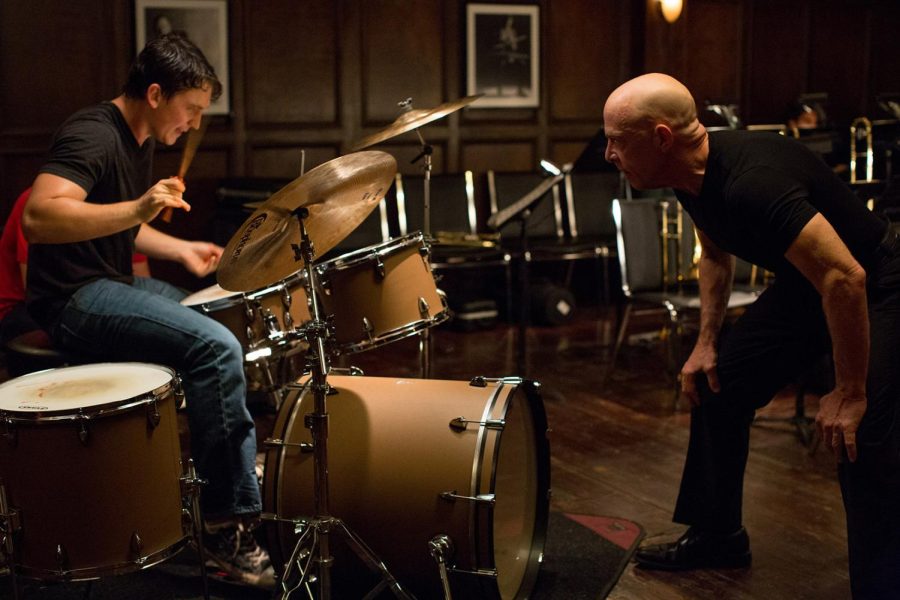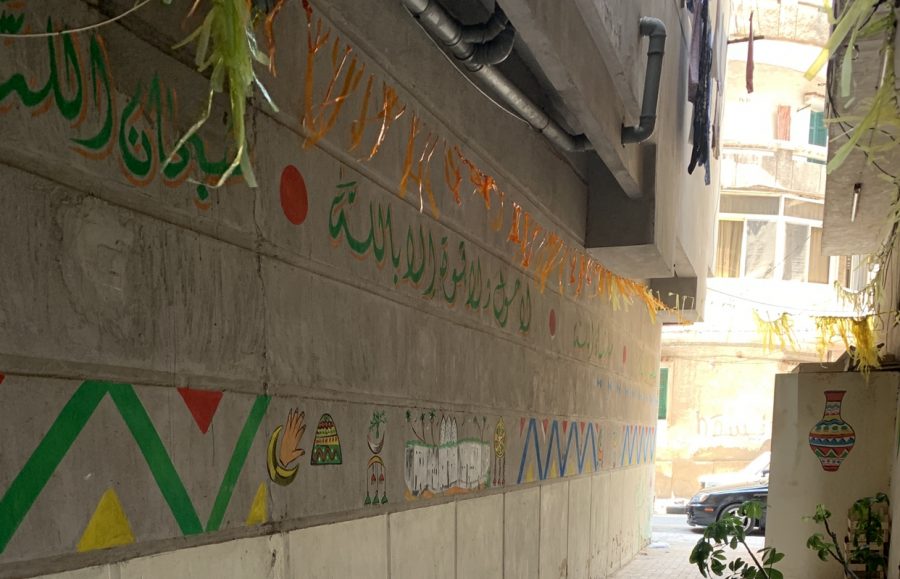This is part two of a four part serial written by senior Carolyn Bedell. Influenced by true events, “Four Places of Comfort” will be a mixture of fiction and nonfiction, themed around cities, towns, buildings and areas that made a significant impact on the author’s childhood and teenage life. The reader is recommended to sit back, relax, and not take anything for face value but to rather enjoy the show.
We don’t know how exactly traditions start, they just are. I remember a point in my childhood when family and tradition was valued, accepted, allowed. With the holidays coming up, I’d like to revisit a day when tradition was neglected. This is not a comfortable place or memory.
–
“Won’t you celebrate Christmas with us?”
My aunt and uncle from New York stare at my mother as if her mouth is full of straw. Adorned boxes are already in their clawed hands, and my uncle already has one of his hands on the doorknob going downstairs to the basement. I can hear their boys playing video games downstairs (the walls are thin, after all, in this old, creaky house. They didn’t invite me to play).
“No, no, it’s too depressing up here for the boys. It’s much easier for us downstairs,” my aunt purrs. Her husband has already started down the squeaky stairs and she quickly follows behind, leaving my mother behind. She thinks I’m two floors up in one of the bedrooms, or in the living room with my grandmother, or with my father, watching “It’s A Wonderful Life” (what an ironic choice, I think now) on the boxy television that still had bunny ears.
A muffled “Heck yeah, bonus points!” can be heard from one of the boys below, and then the door slams.
I should be somewhere else. I always felt awkward in that house- my grandmother’s house- as though I had never been there before. One of her cats rubs its side against my legs and runs toward the dining room, disappearing from my sight. I think, in that moment, that was exactly what I wanted to do too; dissolve between the mound of tinsel that was her Christmas tree, or out through a small window into the cold. I pour myself a glass of milk, careful that it’s clear of any floating fur, and start to walk to the front of the house, through the kitchen and the dining room and across to the living room. It is the only room that’s lit, at least now.
My grandmother is laying on the couch, a thick blanket draped over her. If you were to see just the closest half of the couch from the doorway, you’d probably assume everything was alright. She looked like she was only sleeping, oversleeping Christmas morning, with just a touch of color left in her cheeks. But there’s three machines at the foot of the bed, and one to help inject different medications I struggled so hard to pronounce, and a heart monitor beeping with every half-minute. She had been diagnosed only a year earlier. Three rounds of chemotherapy. A good fight. But not good enough.
My grandmother was dying.
We’ve tried our best to make the room presentable. We decorated her vintage plastic Christmas tree with glittery tinsel and family ornaments and small twinkling lights. We even hung our own stockings next to my grandmother’s hand-knitted one from her youth, and the radio hums holiday tunes from a generation past. If my grandmother were to wake from her comatose state, she would have found her youngest son, his wife, and their only child- yours truly- huddled together in our flannel pajamas on the carpeted floor, passing out small presents to each other. And unwrapping them. And acting as if we’re happy, and thankful, and everything’s okay.
My mother said that my grandmother wanted to live until Christmas. Now I know where I get my stubbornness. But there’s a part of me that wonders if my grandmother was too selfish for her own good. She had lived a full life, raised three sons mostly successfully through a divorce, and adopted numerous cats who needed a home. At the end of her life, there was no question about it; she had struggled. And honestly, living until Christmas was next to impossible. She barely was there anyways, in the sense that she was there only physically; laying on the couch with her eyes closed, chest barely quivering with every breath. I’m not saying that I regret her actions, her strength was far more powerful and present than I think anyone realized- it was Christmas. It was Christmas, that’s what I always had an issue with. Because while everyone was celebrating and jolly and filled with merriment, you would be reminded that there was always be one less person at the dinner table.
I wonder how much she can hear, really. My mother encouraged me to sit next to her in a chair, the type with cushions that cave in deeply whenever you sit in them, and tell her stories. But I can’t think of anything good to say, and my mind is full of worry, and I hate hearing my own voice, even back then. I was usually skilled with coming up with stories, short stories that I would usually forget about before committing them to paper. But I couldn’t even imagine where to start.
Even at thirteen, I knew that what was happening was irreversible. I knew that she would be gone soon, and my aunt and uncle would collect their inheritance and go back to New York. Leaving us behind with all of the loose strings, hospital bills, etc. I don’t know how my parents ever did it.
It’s 11:54 PM. We’re still dressed in our pajamas from the morning, and a small fire roars in the electric fireplace in the living room. My family from New York have been downstairs since the morning, playing with games and partying. For them, this is a waiting game. For my parents and myself, this is a museum filled with irreplaceable relics burning to the ground, and you can’t do anything about it. I don’t know why exactly we were up that late, we were probably watching more films and merely lost track of the time. The radio finished the last Christmas song of the season, and the grandfather clock in the hallway rang midnight, echoing through the entire house.
I remember that everything got quiet, real quiet then, like in church right before the organs begin to play. The seconds seemed to tick for a good forever, and any movements were slow-going, like everyone held their breath. My grandmother had made it to Christmas. She made the impossible, possible. My father gets up from his chair, walks over to his mother and kneels down, pressing his hand in hers. I don’t know what exactly he told her, but a minute after he whispered some words in her ear, he started to shake, like his shoulders were great boulders caught in an earthquake, and pressed his hand against his face.
She was gone.
I knew it, she was gone. Gone forever, we could never see her again. My mother was already calling the hospice, disconnecting the machines and logging the time, being in the medical field made her skin thick; deep inside, she was suffering as much as my father. I felt disconnected, the first time I had ever depersonalized and far from the last. This couldn’t be happening. This wasn’t happening. She’ll jump from the couch, exclaim “Just kidding!”, perch herself sweetly on the piano seat and start playing a hymn, perfectly note to note without the assurance of any sheet music. Full of energy and warm and young; not limp and cold.
My family from New York finally grew the nerve to show their faces to us after their day of seclusion, and when they realized what happened, there was absolutely no emotion on their faces. I remember that, and how strange it was. How could one be so cold about their loved one’s passing? I cling to my father’s side when he stood up, tears rolling down my warm cheeks. My mother joined us. Suddenly everyone else was at one side of the three of us, staring at the couch and the person on top of it, and not knowing what to say or do.
I want to imagine that in this singular moment my grandmother, before she made the journey to heaven, took one last look at her three sons, their wives, her grandchildren. I hope she saw her three cats, one of which was curled up at her cold body’s feet, and the countless cats she had before them. I hope she saw a blanketed version of the truth, wherein everyone stayed together and didn’t fight; or maybe it would’ve been better to reveal the truth, and that we moved to Ohio six months later and my family never saw her two other sons and their families again. We began to unravel then, a once tightly intertwined family now just independent strings, still awkwardly bent in the shape they were so used to for years. In the passing of my grandmother, I lost a part of my family that night.
I began writing again, only this time, I spilled my words on paper before they could ever touch my lips.














Brenda Kramer • Feb 9, 2018 at 3:57 pm
Carolyn,
I am so happy your mom shared this link with me today. I often wonder what becomes of past students. I envision what they will become based on their passions when they leave my classroom. I knew you were destined for greatness; I was quite sure you would dapple in writing at some point in your adult life… you had a noticeable gift even way back in second grade! I cried with you as I made my journey through your words… keep writing, your pen is so powerful and I can’t wait to see what else you will produce! You are an amazing author!
Shari Shelton • Feb 9, 2018 at 1:21 pm
Just wow. I was there. I felt the angst. Made me tear up. And boy was that a true collaboration between fiction and non-fiction! Great job young’un! Your second cousin Shari
Linda Bedell Kucway • Dec 26, 2017 at 9:52 pm
Awesome writing Carolyn!
I feel like I was right there with you. Yes sad but in a beautiful way.
I’ll be looking forward to 3 & 4!
L, Grandma Lin